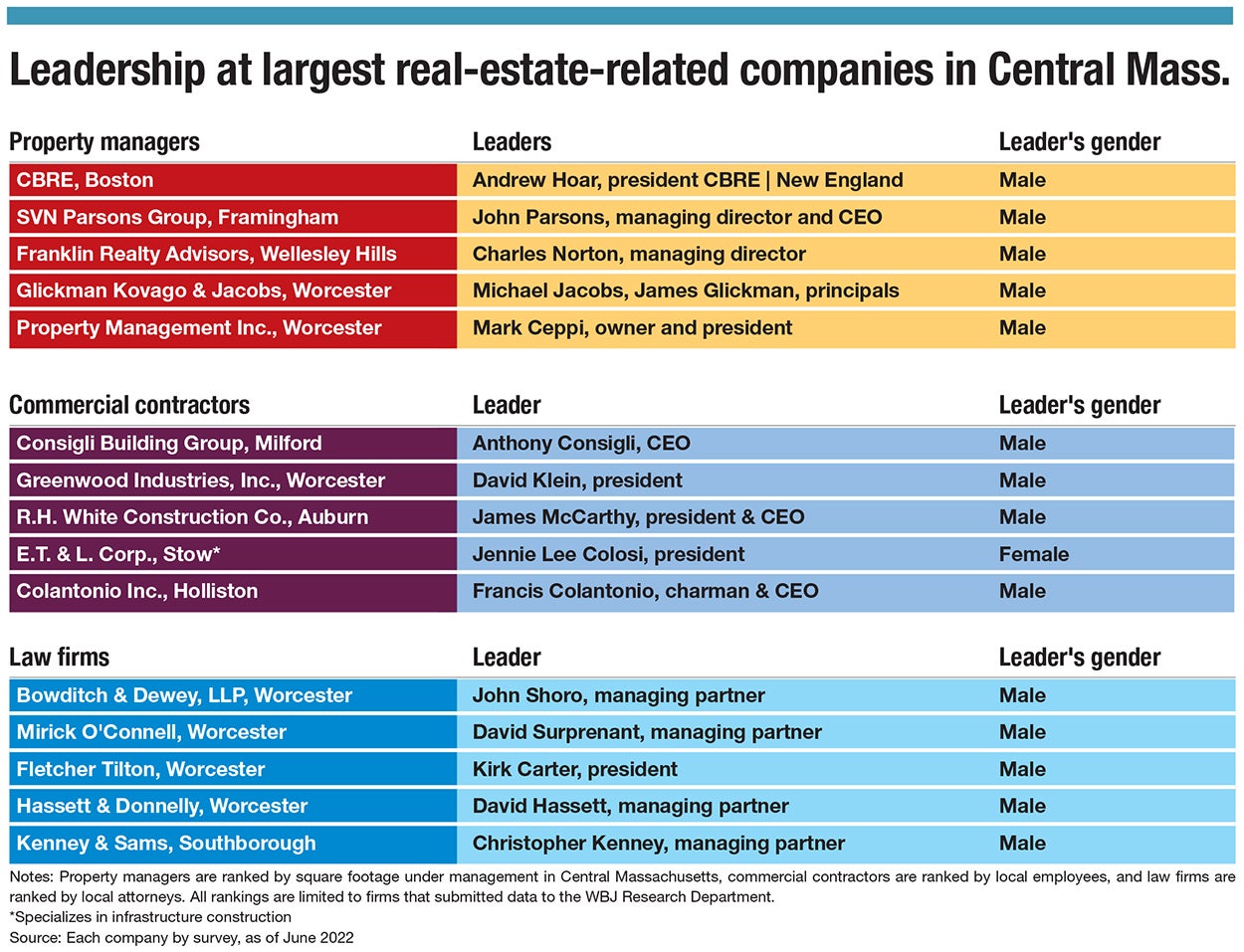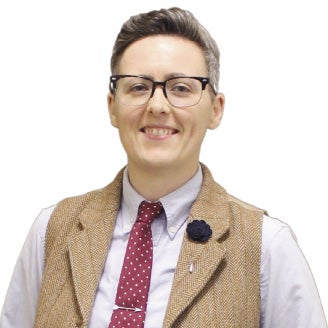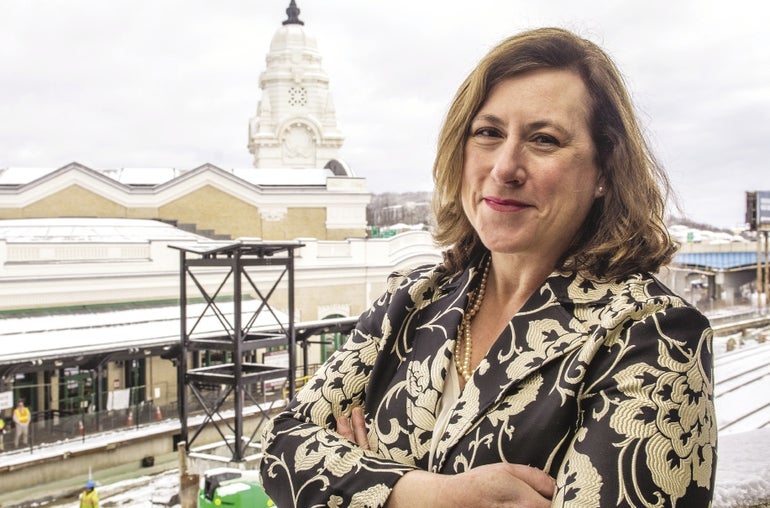Samantha McDonald has risen to partner at Bowditch following an untraditional career path.
Get Instant Access to This Article
Subscribe to Worcester Business Journal and get immediate access to all of our subscriber-only content and much more.
- Critical Central Massachusetts business news updated daily.
- Immediate access to all subscriber-only content on our website.
- Bi-weekly print or digital editions of our award-winning publication.
- Special bonus issues like the WBJ Book of Lists.
- Exclusive ticket prize draws for our in-person events.
Click here to purchase a paywall bypass link for this article.
Real estate is in Samantha McDonald’s blood. Both of her parents were real estate agents in California, but she realized early on that she did not want to be a broker.
“It’s a tough life as a kid,” she said. “In California, the Realtors and the title companies handle everything, so anytime there was trouble, family vacations were canceled, people had to fix themselves dinner. So, I swore I’d never be a broker.”
Instead, she has become a commercial real estate attorney at Worcester law firm Bowditch & Dewey, embracing her desire for bringing people together.
“I'm not an adversarial person by nature,” she said. “You want something. I want something. Let’s figure out how we can both get what we need to make this happen.”
She has risen to partner at Bowditch following an untraditional career path, including initially dropping out of college and working in residential evictions. Now, operating in the still male-dominated field of commercial real estate, she encourages more women to join her, particularly from the residential real estate side of the industry.
“If they can succeed in dealing with houses, there’s no real reason not to,” she said. “Those skills transfer really well.”

For the first time this year, McDonald is working on a development where the lawyer, the broker, and the client are all women. She has teamed with diversity and inclusion consultant Valerie Zolezzi-Wyndham and broker Amy Stillman of Rubric Commercial in Worcester to find Zolezzi-Wyndham a building to purchase, in order to start an incubator for entrepreneurs of color.
Her path to commercial real estate
McDonald dropped out of college when she was 19 years old and started working as a receptionist.
“I got pregnant, got married, in that order,” said McDonald, “and had my first daughter when I was 21.”
The family moved to Worcester so her husband could go to graduate school at Clark University. As her two daughters got older, McDonald decided she wanted to complete her education.
“Statistics show over and over again that mom’s educational level is the biggest predictor of how well your kids do in the future,” she said.
McDonald worked as a paralegal at the Law Office of Thomas J. Aitken in Worcester while she earned her bachelor’s degree in environmental science from Clark and worked toward her law degree at Suffolk University in Boston. She was acquiring knowledge on the legal industry as a paralegal and knew she could use it to get paid better as an attorney.
The plan was to take over Aitken's practice, but business dried up with the housing crisis of the late 2000s as the practice primarily dealt with residential conveyancing.
Instead, McDonald joined Worcester law firm Fletcher Tilton’s litigation department in 2009. She rose to become a junior partner and worked in a variety of areas at the firm, including corporate law.
While at Fletcher, she worked on residential evictions. While she felt most of the cases she worked on were fair, where landlords gave tenants ample opportunity to catch up on rent payments, it was difficult work for her personally.
“It tends to be one of those areas where it’s a little harder to find a win-win. When the mom of a three-year-old says ‘How do you sleep with yourself at night?’ it kind of takes the stuffing out of you,” said McDonald.
McDonald joined Bowditch in 2018 and now focuses on environmental law and nonprofit real estate.
Among her notable real estate projects, McDonald worked on the sale of the former Saint Peter-Marian High School site to Worcester nonprofit Goddard/Homestead in January. The site will be redeveloped into senior living.
She helped AIDS Project Worcester get into its Southbridge Street location when it had to leave the Canal District.
Outside of her day–to-day responsibilities, McDonald serves on the boards of nonprofits Worcester Regional Research Bureau and the New England Botanic Garden at Tower Hill in Boylston, as well as committees for Music Worcester and the Greater Worcester Community Foundation.
“I was on a lot of nonprofit boards, but I discovered that it would be better to scale that back as much as I love doing that,” she said. “Now I’m down to two.”
Working toward gender equity in CRE
Women occupy 37% of all positions in the commercial real estate industry, according to a 2020 survey from the trade group Commercial Real Estate Women Network published with the Massachusetts Institute of Technology.
In addition to holding fewer positions, the CREW study found a 10.2% gender pay gap in salaries and a 55.9% gender pay gap in earnings from commissions and bonuses between men and women.
Only 9% of C-suite positions in commercial real estate are held by women, according to the study, which surveyed 2,930 industry professionals.
The imbalance is even more noticeable locally, said McDonald. Larger national firms like the Trammell Crow Co. of Texas and the Tishman Speyer of New York understand the importance of gender diversity in their ranks, more than smaller local players.
“They have a different view on how important it is to at least look like they’re paying attention to demographics,” said McDonald.
Stillman, the broker working with her on the Worcester incubator deal in what will be McDonald’s first all-woman commercial real estate sale, said her firm, Rubric, has made an effort to create a diverse roster of brokers, even as gender diversity remains a problem for the industry.

“I don’t spend my days thinking about it,” Stillman said.
Stillman has had women residential brokers pass on commercial listings to her. Part of that may be because there are different skill sets involved, but many feel less confident in the culture of commercial real estate, she said.
Change has been slow because of people’s inclination to work with those they already know, McDonald said. Commercial real estate has a work-hard, play-hard culture with a lot of after-work networking.
“There's a lot of chest beating,” McDonald said.
That culture is tough for women on whom household responsibilities fall.
“Not all women, but certainly a lot of women have other things to get done too,” she said. “Somebody has to pick up the kids. If you take the client out for a round of drinks, you're not going to make the pick up time.”
According to CREW, gender diversity in commercial real estate is incrementally improving. Between 2015 and 2020, the group saw a 6% increase in women in broker positions and a 4% increase in women who aspire to a C-Suite position.
As more women enter the industry, the easier it will be for women to gain entry in the future.
“To borrow a phrase from the LGBTQ community, ‘You can’t be what you can’t see,’” said Stillman. “The industry can do better.”
McDonald is cautiously optimistic.
“I hope I’m seeing a change, slowly,” said McDonald. “The less insular Worcester is, the more we have an opportunity to change.”

